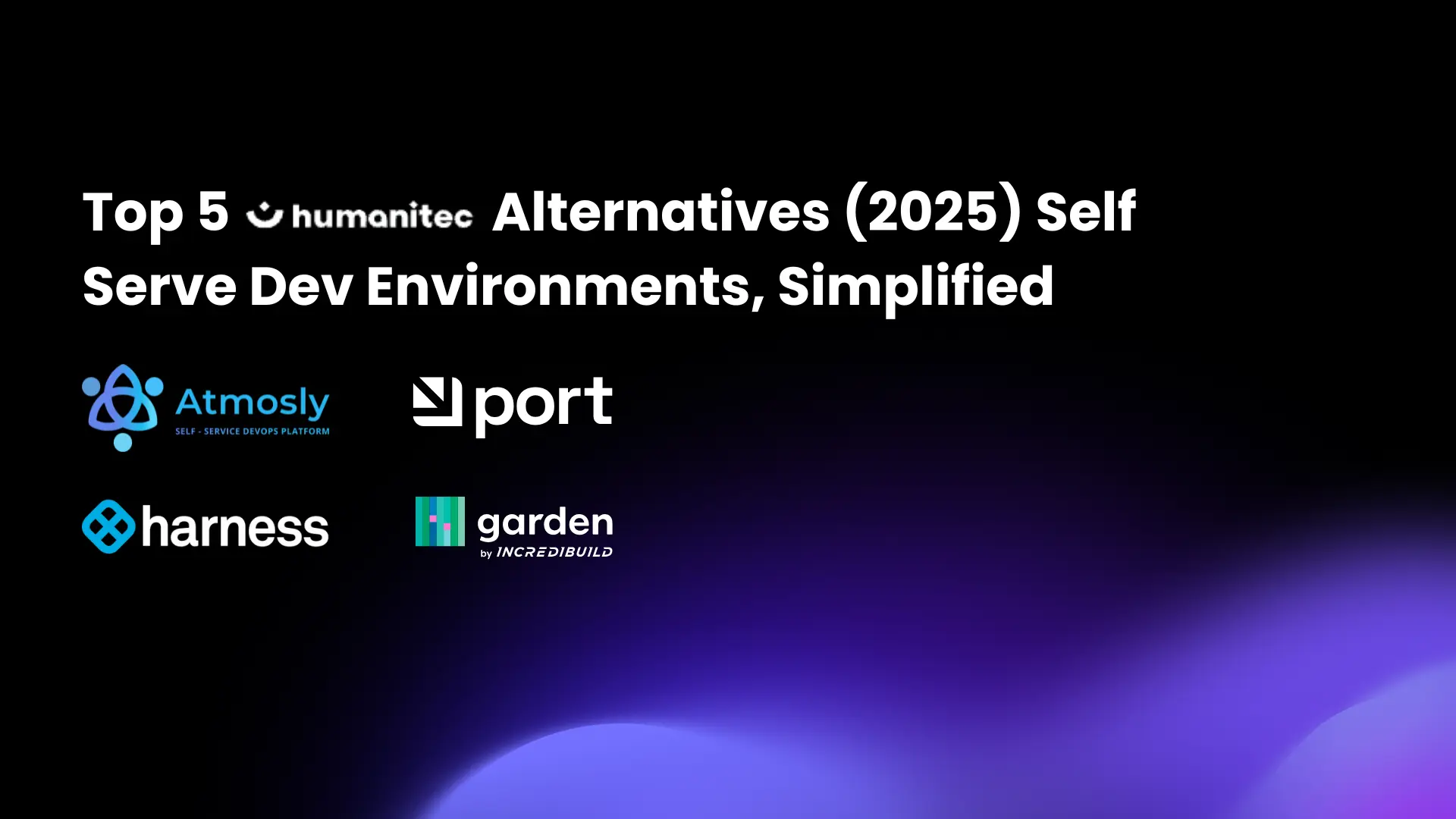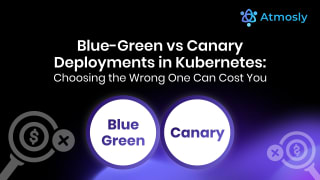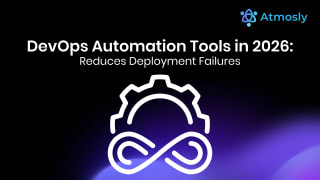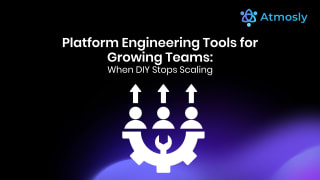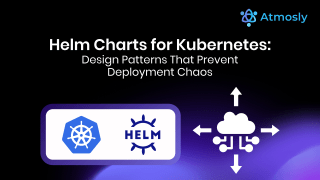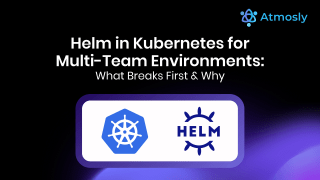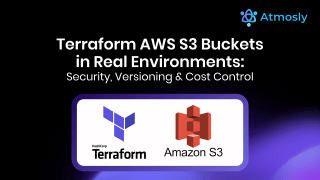Humanitec has emerged as a strong player in the platform engineering space, helping teams abstract infrastructure complexity and enable dynamic environment provisioning. But as organizations evolve, many are looking for alternatives that offer faster onboarding, native GitOps, built-in CI/CD, and developer-first experiences.
Whether you're building an internal developer platform or scaling your engineering operations, here are the top Humanitec alternatives for self-serve dev environments in 2025.
1. Atmosly
Best for: GitOps-native platform engineering with built-in CI/CD and secrets management.
Atmosly is a modern DevOps automation platform built for developer self-service and platform scalability. It combines environment provisioning, CI/CD, GitOps, and secrets handling into a seamless, unified experience.
Key Features:
- GitOps-native deployment workflows with rollback and drift detection
- Built-in CI/CD engine supporting GitHub Actions, GitLab, and Bitbucket
- Ephemeral and persistent environment automation
- Secure secrets vault with RBAC
- Developer onboarding through reusable golden path templates
Why Choose Atmosly:
- All-in-one solution for self-service DevOps
- Ideal for product engineering teams, startups, and scaling DevOps orgs
- Rapid time-to-value and minimal setup required
2. Port
Best for: Visual developer portals and infrastructure workflow discovery.
Port allows teams to expose internal infrastructure workflows and metadata through customizable developer portals. While it focuses on visibility and discoverability, it is often used alongside GitOps or automation tools for deeper orchestration.
Key Features:
- Visual-first internal developer portal
- Blueprints for modeling services and environments
- Integrates with GitHub, ArgoCD, Terraform
- Dashboard-driven self-service actions
When to Use Port:
- Organizations that prioritize visual workflows over API-first orchestration
- Teams looking to expose existing infrastructure workflows through a portal
- Platform teams seeking service ownership, metadata, and automation triggers
3. Harness
Best for: Enterprise-grade CI/CD pipelines with integrated policy and security.
Harness is a powerful DevOps platform offering a robust suite of features including CI/CD pipelines, feature flagging, cost management, and deployment safety tools. It’s particularly suited to regulated industries or enterprises with high security standards.
Key Features:
- Advanced CD strategies (canary, blue/green, rolling)
- Built-in policy-as-code and governance
- Feature flag management and progressive delivery
- Cost optimization and auto-stopping idle infrastructure
Why Choose Harness:
- Focuses on reliability, automation, and cost efficiency
- Offers a highly governed CI/CD pipeline model
- Scales well in enterprise and hybrid cloud environments
4. Garden
Best for: Kubernetes development workflows and fast inner-loop automation.
Garden helps streamline development, testing, and deployment for Kubernetes-based applications. It enables fast feedback loops with caching, hot reloading, and dev/test environment automation.
Key Features:
- Developer-first CLI for building, testing, and deploying microservices
- Automates dev/test workflows across Kubernetes clusters
- Task orchestration, logs, hot reloading
- Compatible with Helm, Kustomize, Docker Compose
Why Consider Garden:
- Accelerates development in Kubernetes environments
- Ideal for microservices teams and platform engineers
- Complements GitOps tools with developer productivity focus
Summary Comparison
| Tool | Best For | GitOps Native | CI/CD Built-in | Secrets Management | Self-Service Templates |
|---|---|---|---|---|---|
| Atmosly | Developer-first DevOps automation | ✅ Yes | ✅ Yes | ✅ Yes | ✅ Yes |
| Port | Visual developer portals | ❌ No | ❌ No | ❌ No | ✅ Yes |
| Harness | Secure enterprise CI/CD | ⚠️ Partial | ✅ Yes | ⚠️ External tools | ❌ No |
| Garden | Kubernetes dev/test productivity | ❌ No | ❌ No | ❌ No | ❌ No |
Final Thoughts
Humanitec has pioneered dynamic environment orchestration for internal developer platforms, but it’s not the only option. Teams now have access to tools like Atmosly, Harness, and Garden that offer GitOps, developer-centric experiences, or advanced CI/CD pipelines out of the box.
- Choose Atmosly for a complete, Git-native self-service platform.
- Choose Port for visual-first infrastructure workflow visibility.
- Choose Harness for enterprise CI/CD with full audit and cost control.
- Choose Garden if your priority is speeding up Kubernetes development.
The best alternative depends on your platform maturity, developer workflow, and DevOps goals in 2025.
Get Started with Atmosly
- Launch your first GitOps deployment in minutes
- Explore pre-built environment templates
- Book a demo with our solutions team
